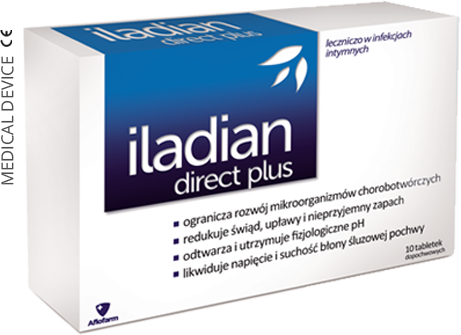
Vaginal dryness
Vaginal dryness is a common issue of women at different stages of life:
after childbirth and/or during extended breastfeeding
during long-term contraception use
after vaginal surgery
during and after menopause
In some women, vaginal dryness is also connected with:
antibiotic therapy
allergy to detergents
wearing wrong type of underwear
irrigation overuse
susceptibility to sex-related vaginal and vulvar mechanical injuries
sexual disfunctions
treatment of recurring vaginal infections and/or lower part of urinary tract.
In Poland, as much as 23 percent of women in the age of 30-60 experience vaginal dryness, and during the menopause,
the problem concerns approximately 30 percent of women. Global research show that the problem concerns almost
every second woman over 45 years, wordlwide.*
*source: http://www.termedia.pl/mz/Suchosc-pochwy-problem-powszechny-i-temat-tabu,17469.html
Discomfort that women may feel along with vaginal dryness:
- itching
- burning
- pain of intimate areas which may result in discomfort during sexual intercourse.
Vaginal dryness causes great discomfort for women, resulting in all-day-long deterioration of their wellbeing.
Vaginal dryness versus infections
Intimate infections and their treatment is frequently accompanied by vaginal dryness *. Thus, it is crucial to use
preparations nourishing and supporting the regeneration of vaginal mucous membranes during infection treatment:
hyaluronic acid – is capable of binding water, thus has a great hydrodynamic potential with visible and quick clinical hydrating effect,
vitamin E– hydrates vaginal mucous membrane, thus soothes itching, dryness, the feeling of tightness and reduces susceptibility to microinjuries.
*source: Termedia medical journal






